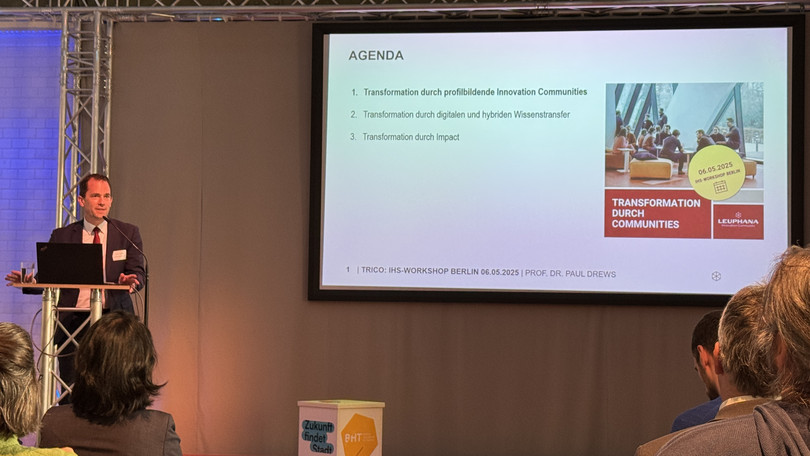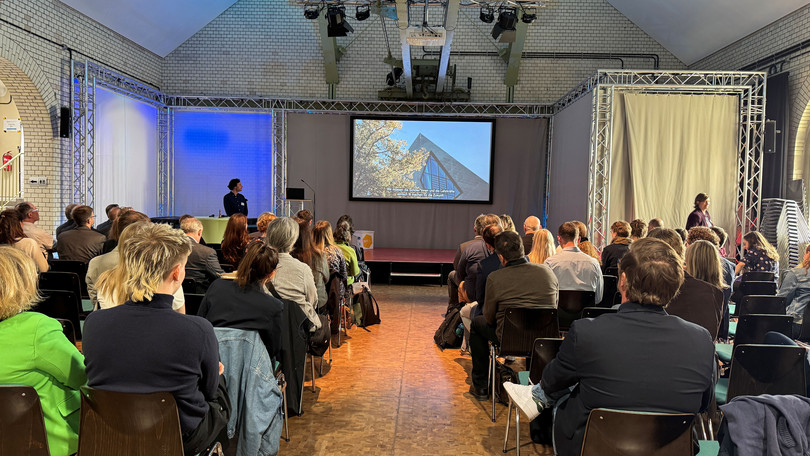Collaborative, innovative, hybrid: how the Leuphana Innovation Communities are shaping transformation
2025-05-13 Best practice in cinema format: Prof. Dr. Paul Drews, Academic Director of the Leuphana Innovation Communities, gave a vivid presentation of how the Lüneburg communities are shaping transformation during a two-day workshop of the federal-state initiative “Innovative University”.
“Our communities create diverse, innovative spaces for exchange - both in person and digitally networked - that are precisely tailored to different target groups and needs. Whether teachers, sustainable founders, art houses or manufacturing companies: People meet here to share ideas, learn from each other and think ahead together,” said Prof. Dr. Paul Drews, Scientific Director of the TrICo project, at the meeting of 29 ‘Innovative Universities’ (IHS) in Berlin. Drews had been invited by the project sponsor VDI to present the Leuphana Innovation Communities as best practice during the two-day workshop entitled “University - Society - Transformation”.
The video clip on the four Leuphana Innovation Communities, which was shown in cinema format on a large screen, made a particular impression at the beginning. The project's own media studio, which produced the film, was an elementary part of the presentation. “We have found that a mobile production team works very well to authentically capture the diversity of the projects and prepare them for digital knowledge transfer,” says Drews. Many of the 80 or so attendees were also intrigued by the fact that the Leuphana Innovation Community School Development and Leadership was the first group from the education sector to use the Innomatch web platform for exchange.
The TrICo project was selected as best practice following a visit by the project sponsor at the end of February. The community employees had presented their diverse activities of the past year. These activities and many other transfer projects throughout Germany then formed the basis for the Berlin workshop participants to spend two days discussing the successes and pitfalls of transfer work.
In his keynote speech, Wuppertal's Lord Mayor Prof. Dr. Uwe Schneidewind, for example, put forward the thesis that the so-called third mission - transfer - should be seen as the first mission in order to align research and teaching with it. In this way, science as a democratic pillar would do justice to its social role and could actively promote transformation. The participants picked up on this and engaged in an intensive exchange of ideas in the atmosphere of a restored machine hall at the Berlin University of Applied Sciences.



